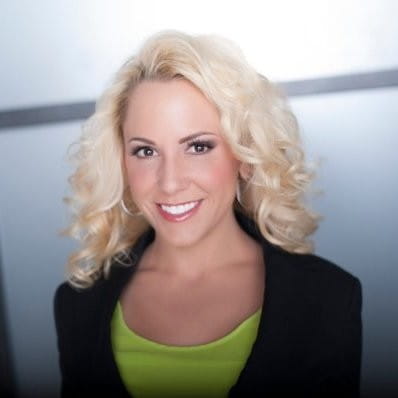
February 2019 | Q&A Spotlight
Creating opportunities for a college education: Talking with Jessica Bartnick of Foundation for C.H.O.I.C.E.
Creating opportunities for a college education: Talking with Jessica Bartnick of Foundation for C.H.O.I.C.E.
 Jessica Bartnick is co-founder and CEO of Foundation for C.H.O.I.C.E. (Consider How One Individual Changes Everything), a Dallas-based non-profit that serves at-risk youth through a one-to-one mentoring program that inspires students to make positive choices for their future and creates opportunities for a college education.
Jessica Bartnick is co-founder and CEO of Foundation for C.H.O.I.C.E. (Consider How One Individual Changes Everything), a Dallas-based non-profit that serves at-risk youth through a one-to-one mentoring program that inspires students to make positive choices for their future and creates opportunities for a college education.
What do you want readers who are unfamiliar with Foundation for C.H.O.I.C.E. to know about your organization?
We are a mentoring program for low-income, underserved students in Dallas who are among the first generation in their families to pursue a college education. Across the nation, only 14 percent of low-income students will graduate from college. The rest will drop out of the educational system due to lack of knowledge and resources. A college degree is a ticket out of this environment and provides a path for young people to pass their learnings on to their families and grandchildren. Thus, helping one student achieve a college degree today could help 10 children achieve a college degree tomorrow.
We created a proprietary, copyrighted curriculum that helps at-risk students secure college entry and college scholarships. We focus on preparing hand-picked students for life after high school, while providing them with the resources, skills, and mentoring relationships necessary to promote a seamless transition. The students we mentor have a 95-percent college entrance rate and receive, on average, $30,000 in college funding.
How did you come to start Foundation for C.H.O.I.C.E.?
I held number of jobs the corporate world, but always felt there was something of a void in my work. Eventually, I realized the common denominator was myself. I began volunteering with low-income high school girls in the community to fill that void. I was amazed by how talented and bright these girls were and how much more they knew than I did at that age. But I also began to see that they didn’t know what they don’t know – meaning, they didn’t recognize the opportunities that are out there for them or how to pursue those. Families that have attended college know how to guide their children toward those opportunities, but these students did not have that type of guidance. A lightbulb went on, and Foundation for C.H.O.I.C.E. was born. I have found it extremely rewarding to be able to make such a difference for our youth. This truly doesn’t feel like “work.”
How is Foundation for C.H.O.I.C.E. addressing the low college entry among low-income youth?
We have a great formula that is now copyrighted. It consists of three 9-week projects.
During the project, students research colleges and identify a “top five” based on consideration of their qualifications and acceptance criteria. They also develop a resume and learn soft skills, such as how to write a professional email. During the second project, the students are paired with a business to learn about how it runs. They participate in three phone calls and then visit for a half-day “career shadow.” These visits can be eye opening for the students and help them realize the life opportunities that come with having a college degree.
Then, during the third project, juniors participate in an exercise of creating a mock business. This teaches important entrepreneurial and life skills, such as planning and financial analysis. Seniors get into the nitty gritty of college and financial planning. All seniors apply to four colleges and typically are accepted at 75 percent of them. They then work with their mentors to make sure the college they select is a fit with the funding they receive. Mentors also help prepare students with tools and resources they will need to succeed in a new environment – for example, how to talk to a professor or how to get involved in campus activities.
What is the biggest challenge facing non-profits like Foundation for C.H.O.I.C.E. in Dallas?
The biggest challenge is always resources. There is so much to be done here. With everything moving north, the low-income population is increasing in the city, and the homeless rate is skyrocketing. Non-profits need to collaborate and share information and resources to elevate their impact.
While we’d love to expand beyond Dallas – and that is our ultimate goal over the next five to ten years – we still have a waiting list of schools that want our program locally. Expanding into schools in more affluent areas here is one way to help us raise funds and grow our capacity to meet local demand.
As technology consultants, we are interested in how technology impacts non-profits and the communities they serve. How does Foundation for C.H.O.I.C.E. use technology to further its mission?
With West Monroe’s help, we recently implemented Salesforce in our office. This has allowed us to move information online that we previously maintained in very complicated spreadsheets. The dashboard updates information automatically, so we can instantly see things like the percentage of participants who have been accepted to college, the amount of funding they have received, and which students may need a little extra help in reaching their goals. It is saving us so many hours of “desk work” that we can now devote to what we do best – working directly with students.
How can the Dallas business community engage with Foundation for C.H.O.I.C.E.?
While funding is always very valuable, we always need more volunteer mentors from the business community. The more mentors we have, the more students we can impact. The only qualification for a great mentor is interest. One of the great things about our curriculum is that is that it guides a mentor, regardless of life or career stage, through every step of the process.
We are also looking for business champions to participate in the second segment of the program. A business champion is a company that works with a mentor and a small team of students on a research project. This takes place over three to four weeks, so it is a less time-intensive way to be involved but still make a meaningful impact. Finally, we have started a laptop donation program to provide our graduating seniors with computers that they can take to college.
What's your favorite thing about living and working in Dallas?
I love watching the city continue to grow and evolve. I grew up in Oklahoma and went to the University of Oklahoma, so one of my favorite times of the year here is the Texas/OU rivalry weekend. It is a great rivalry – competitive, but a lot of fun.

